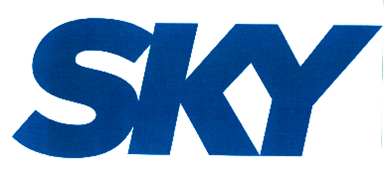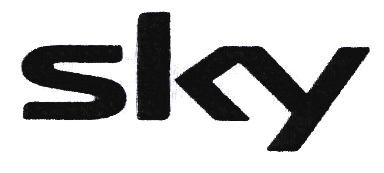What you need to know
- Long trade mark specifications may now become a feature of the past as a result of the UK Supreme Court decision in Sky v Skykick.
- If it is difficult for the trade mark owner to demonstrate that at the time of filing, it had a genuine intention to use the mark on all the goods and services claimed, the trade mark may be held to be invalid.
- A number of invalidity challenges to existing trade mark registrations in the EU and the UK are expected to arise as a result of the decision
Following our recent article reporting on a trade mark dispute involving bad faith and the famous English street artist Banksy, there has recently been an important update. The UK Supreme Court has now published its long awaited decision in Sky v Skykick. This ruling addresses the issue of bad faith registrations. The judgment provides a stern warning to brand owners. Broad specifications of goods and services in trade mark applications may be held invalid for bad faith. This applies if the owner cannot demonstrate a genuine intention to use the mark on all goods and services claimed at the time of filing. We review the decision and consider the key takeaways for brand owners.
Background
Sky initiated trade mark infringement and passing off proceedings against Skykick in May 2016 on the basis of its four registered EU trade marks (EUTMs) and one UK trade mark (UKTM) depicted below.
1. EUTM 003166352 for the below mark which was registered since 12 September 2012

2. EUTM 003203619 for the below mark which was registered since 6 September 2012

3. EUTM 005298112 for SKY which was registered since 18 June 2015
4. EUTM 006870992 for SKY which was registered since 8 August 2012, and
5. UKTM 00002500604 for SKY which was registered since 7 September 2012.
The range of goods and services protected by these marks is ‘enormous’ and includes goods and services in classes 3, 4, 7, 9, 11, 12, 16, 17, 18, 25, 28, 35, 36, 37, 38, 39, 40, 41, 42, 43, 44 and 45 of the Nice Classification. In addition, some of the goods and services are broad in nature such as “bleaching preparations and other substances for laundry use” in Class 3 and “computer software” in Class 9.
Litigation
Sky alleged that Skykick had infringed the Sky marks above by using the Skykick mark. It claimed that this use misrepresented SkyKick's products and services as being connected with Sky, amounting to passing off. In particular, Sky sought an injunction to prevent Skykick from using the Skykick mark for electronic mail migration and cloud storage products and services. Skykick denied all of the claims. It argued by way of defence, that it had done no more than make use of its own name in accordance with honest practices. Skykick counterclaimed for a declaration that the Sky marks were wholly or partially invalid. This was because the specifications for each of the Sky marks lacked clarity and precision. It also argued that the applications had been made in bad faith as Sky had no genuine intention of using the above marks on all, or at least some of, the goods and services for which they were registered.
Court decisions
After various Court actions including a reference to the Court of Justice of the European Union, the UK High Court held that the Sky marks were partially invalid for bad faith. The High Court agreed with SkyKick's argument that Sky had deliberately applied for broad trademark protection without considering whether it was commercially justified. That said, Skykick was still held to infringe the Sky marks.
The UK Court of Appeal overturned the partial invalidity of the Sky marks in July 2021. It also dismissed Skykick’s appeals against infringement and its claims for greater restriction of the specifications.
On the infringement question, the Court of Appeal held that Skykick’s cloud storage services fall within “computer services for accessing and retrieving audio, visual and/or audiovisual content and documents via a computer or a computer network” in class 38. Both parties appealed to the UK Supreme Court.
Supreme Court decision
The Supreme Court held that a broad specification may lead to an inference of bad faith. This inference may be challenged with an explanation that demonstrates an “appropriate commercial rationale.” The failure to provide a satisfactory explanation can, however, reinforce the inference and provide further support for a finding of bad faith. On the law surrounding bad faith more generally, the Supreme Court noted that:
- It is an absolute ground for invalidity of a EUTM that the application was filed in bad faith. The date for assessing whether an application to register a EUTM was made in bad faith is the filing date of the application.
- Bad faith will be established where the owner filed the application: (i) with the intention of undermining, in a manner inconsistent with honest practices, the interests of third parties; or (ii) with the intention of obtaining an exclusive right for purposes other than those falling within the functions of a trade mark.
- The burden of proving bad faith lies on the party making the allegation. However, where the circumstances of the case require it, it is for the owner of the mark to explain and provide a plausible explanation of the objectives and commercial logic pursued by the trade mark application, and
- Whether the applicant was acting in bad faith must be subject of an overall assessment, considering all of the factors relevant to the individual case.
Takeaways
The key takeaway for brand owners is the need to exercise caution when deciding on trade mark filing strategies. Specifications must not include goods or services, or broad categories of goods or services, which cannot be commercially justified at the time when the application is filed. The optimum approach for applicants is to strike a balance between a sufficiently comprehensive specification and one which is not vulnerable to challenge on grounds of bad faith. Brand owners should always seek expert and professional advice when deciding on brand protection and trade mark filing strategies.
For more information and expert legal advice on how best to protect your intellectual property rights, please contact a member of our award-winning Intellectual Property team.
| Who won the Sky v Skykick trade mark dispute? |
| Neither party as the case was ultimately settled outside of Court. |
| Is the Supreme Court the highest Court in the UK? |
| Yes, there is no further right of appeal from a decision of the Supreme Court. |
| Can the same trade mark be protected in the UK and the EU? |
| Yes it is possible to file the same application in the UK and in the EU. The EU trade mark application no longer automatically extends to the UK. |
The content of this article is provided for information purposes only and does not constitute legal or other advice.
Share this:




